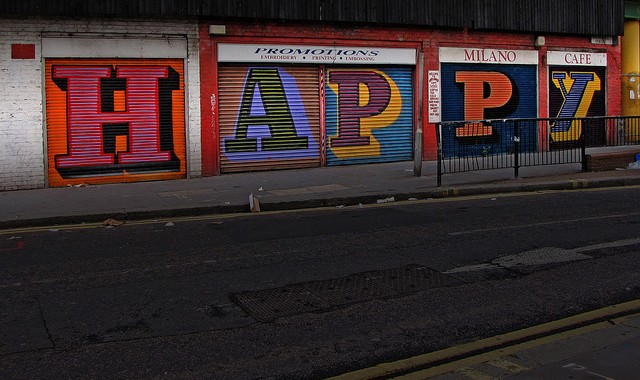How many times have you heard the question, “would you rather be right, or happy?”
It’s always made me a little nuts. Because quite frankly, most times I say, “right, please.” I’ve recently had a change of heart in this matter and hope you will oblige me in exploring the idea of choosing happiness.
Isn’t that funny, I actually have to try to choose happiness.
I used to believe that “right” was an irrefutable fact, thereby making everything and everyone else “wrong.” It seemed to me that “happy” went hand-in-hand with “ignorance is bliss,” and I was not about to wear the dunce cap. So, with my talons firmly embedded in whatever position or idea I was holding, I stood my ground.
In hindsight, I can see that I was simply engaged in black-and-white thinking.
I often encourage my clients in psychotherapy to try to live in the gray. There are a million shades of gray on the spectrum of white to black, and each provides a much richer telling of a story that is hardly ever as clear as this or that. So, when I looked a bit more closely, I saw that “right vs. happy” wasn’t so much about getting crowned the winner or loser, a genius or fool; it was more about my flawed thinking and my desire to feel like I was in control. Yes, that illusion that so many of us want to sink our talons into: Control.
As I reframe the debate of “right vs. happy” to “the illusion of control vs. acceptance / surrender / taking it all a little less seriously,” I can start to see the value in choosing the latter.
Ken Wilber said, “Sometimes you need to allow things to hurt you more, but bother you less.”
Let’s unpack that a little. Why would we want to choose “hurt?” Well, if we are letting go of being right, hurt might mean that we have to grieve. Maybe it’s grieving the idea that we have control and facing our vulnerability. Maybe it’s grieving the dream that never had a chance to be, our attachment to it, and all that we thought it would afford. In this case, we weren’t actually right in the moment, we wanted to eventually be right. It was more of an, “I’ll show you” kind of right.
When we engage in the grieving process—in letting go, the loss no longer has such a tight grip. We can move into the cyclical process of death and rebirth. We can open up to new ideas and experiences. Once this occurs, we are certainly “bothered less.” The unmetabolized grief isn’t gnawing on you like a monkey on your back, and you’re not working so hard to deny its existence. You’ve faced it, taken away its power, and given yourself some choices. And at this point, you are probably a little more “happy.”
Let’s take a moment to define happy in this context. I’m not talking about winning-the-lottery happy, or people-doing-what-you-want-them–to-do happy. Those are external things that we can’t do much about. I’m talking about acceptance happy—where we aren’t in opposition to our own lives. I’m talking about contentment happy. I know, it’s not as flashy as winning the lottery, but trust me, it’s much more attainable and sustainable.
So, the next time your talons are firmly embedded in the position you are holding, see how much grief it is causing you and consider letting it go. Think of it as a social experiment. Perhaps you’ll start with something small, like where to meet your friend for lunch. You may know for certain that the best deli is on the corner of Smith Street, but do you really want to argue that point? I imagine that connecting with a friend about what really matters is much more enjoyable, and far more important.
And when it comes to the bigger stuff, know that you are not alone in having a hard time letting go. We all struggle in this regard. Perhaps you can start with a simple intention to do it differently, knowing that is enough to start the process of moving towards less rigidity, more flow, and ultimately more “happy.”
Ingrid Mathieu, PhD is a psychotherapist and author of Recovering Spirituality. You can connect with her on Facebook and Twitter.
* Photo by Leo Reynolds












